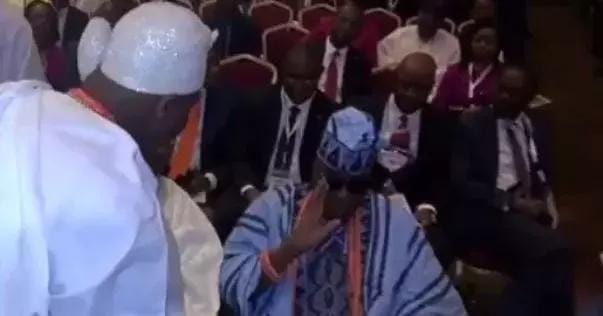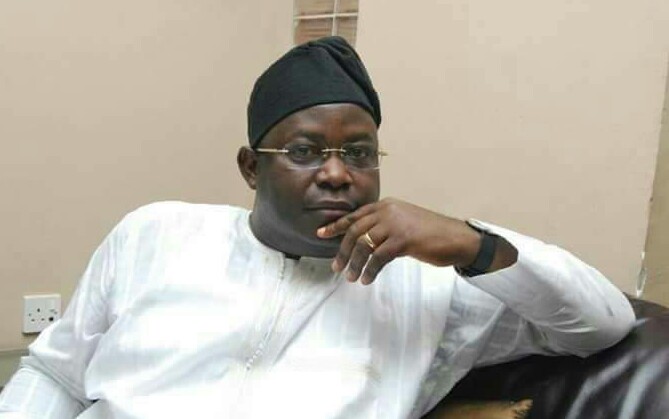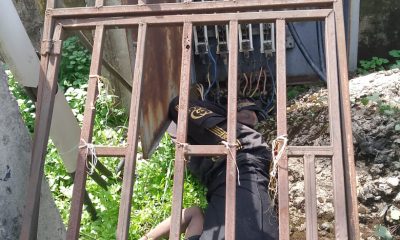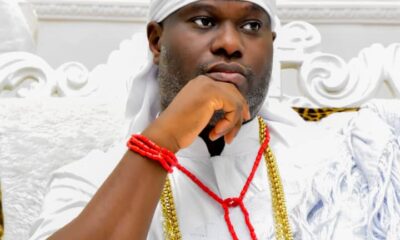News
Oba Akiolu: Snubbing the Wrong Person


In 1920, an Indian king holidaying in London was taking a stroll along the street of a business district. Dressed in the simple tunic of the ordinary worker, he walked alone, nondescript. Then the contents of a Mayfair showroom caught his fancy. It was a Rolls Royce shop. In his almost shabby state, he went in to take a deeper look. Beautiful luxury rides, a Phantom 1 here, a 20/30 (Sedanca de Ville) there. Then this golden Phantom 11. “How much is this one?” The scruffy looking man pointed at the grandest of the harem of rides in the room. A salesman, snooty and snobbish, looked him up and down. Disgusted at the audacity of this poor Indian to ask for the price of a Rolls Royce Phantom 11 Tourer, he showed him the door. Rolls Royce salesmen and girls have their time valued. They don’t waste their seconds on window shoppers. King Jai Singh, Maharaja of Alwar was literally walked out of the shop.
The Indian king did not let the story end there. He went back to his hotel room. Home and abroad, his ancestors were never disgraced. He would not pass down his noble line a legacy of disgrace in a foreign land. And, you know, every king is a living vessel of vanity. Some disguise it as a survival strategy when surrounded by hawkish chiefs. Some others feign a disguise to amuse themselves – like this Indian. This king now got himself fully dressed in the royal apparel of the maharaja and stormed the showroom again with a retinue of courtiers. “I will have every car you have in this shop,” he bellowed. He ordered and paid for seven Rolls Royce cars and got them shipped to India. The salesman and his colleagues were shocked. The shabby lout is a king! It was too late to murmur a sorry. Again, the story did not end there. Back in India, King Jai Singh stood at the balcony of his palace, looked down at the array of gleaming luxury on wheels, their purring engines singing delayed revenge in the ears of the royalty. He ordered that the seven Rolls Royce cars be used henceforth as refuse vans. A pall of unbelief fell on the palace. The king has spoken, his orders must be obeyed. The news reverberated around the world. Rolls, king of luxury, car of London’s nobles now packs rubbish in downtown India. The rich was no longer proud to exhibit their opulence in the golden velvet of the Rolls. The stock value of the Rolls Royce company fell. That true experience and its ugly consequences are etched in the memory of that company forever.
That is the price the haughty anywhere would pay for irreverence. You saw Oba Ridwan Akiolu of Lagos’ unroyal treatment of the Ooni of Ife, Oba Adeyeye Ogunwusi last week? If Oba Akiolu were a quoted company, it would have been nice to see how fallen his shares have been on the floors of the Stock Exchange today. Some behaviours are universally deplored. Even among politicians who swim in insults, what we saw from Lagos would still have drawn certain rebuke. We thought Yorubaland has come of age along with its kingship. We thought the past of rancour and shameful royal rumbles had gone forever. We have been seeing the obaship institution undergoing pleasant rebranding in recent years. A generation of highly literate, youthful, progressive traditional rulers has been carefully redefining the institution in Yorubaland. These are monarchs who have quietly rejected the millennial tag of expensive museum specimens. Kings who rate their thrones above the iron fist of rent collection which blistered the past. These are kings who know there can only be a future when their peoples’ pains are their pains, their burden, the palace’s burden. These kings now build schools to educate the uneducated. They build factories to engage the educated. They swim with the tide and are quick to accept that any palace that will be peaceful today must know what the market says. Is Oba Akiolu part of this movement? If he is not, when will he join the train?
Was it malice? Or envy? Or politics? Or what else could make an oba, any oba, unhappy that the Ooni extended his expensive handshake and warmth to him? Someone said there could be a more fundamental reason for what Oba Akiolu did. I said nothing would make small me misbehave so brazenly in public. Even if the other person was an enemy, was Oba Akiolu not taught in police college how to behave when angry? “In making tactical dispositions, the highest pitch you can attain is to conceal them.” That was Sun Tzu in The Art of War. And that was what I saw in the tactical smiles of the Ooni immediately after the snub. Is it not interesting that it was the youthful Oba Ogunwusi who displayed deep maturity in response to the snooty gestures of the grand old Oba Akiolu?
When a product runs into trouble, its promoters naturally struggle to save the brand. A rash of frantic efforts followed the public ridicule of the stool of obaship. Some said the Lagos oba was physically impaired and so did not know the Ooni was the one greeting him. But is it no longer true that the heavens rumble so the blind could be forewarned of an impending rainstorm? Then Oba Akiolu’s palace on Thursday explained that what we saw as a snub was actually the Lagos royal way of greeting. When did snobbish gestures get rebranded as a warm gesture in Yorubaland? In all cultures, bad cannot be good. Shame is shame even if coated in 24-carat gold. Whatever the roots of the Lagos royalty, the land on which it reigns is still Yoruba. Even Oba Akiolu’s palace historian won’t deny that the first inhabitant of the very spot where the Lagos palace, Iga Idunganran, stands was a 15th century Ile-Ife man named Aromire — a fisherman who swam from Iddo to that spot and turned it to a pepper farm. So, the Ooni remains his historical landlord, if he refuses to take him as his father. Every discerning person knows that the excuses from Iga were pure, poorly made frantic damage control measures. It was bad enough that Oba Akiolu was caught giving what he would not accept. It is worse that the excuses cast the Yoruba in the mould of the uncouth, the uncultured. An acceptance of guilt and apology would have rescued the guilty from the depth of public disapproval. Trying to recreate the story and making scary excuses further alarms the land. May we not have fathers who cannot see; or fathers who curse and say they pray; or kings who think the child is the father
Tribune
-

 News3 days ago
News3 days agoUpdated: Oyo Police Parade Arrested Yoruba Nation Agitators
-

 News2 days ago
News2 days agoJust In: Adeleke Appoints Former Osun Commissioner For Finance, Bolorunduro Chairman Of Living Trust Mortgage Bank
-

 News3 days ago
News3 days ago‘21 Chibok Girls Return With 34 Kids; 48 Parents Die Of Trauma’
-

 News2 days ago
News2 days agoMan Electrocuted While Attempting To Steal Transformer Cables














1 Comment